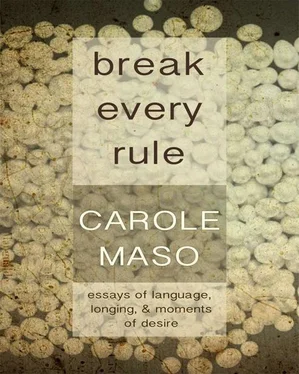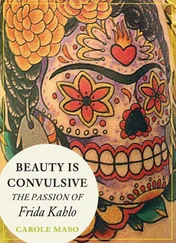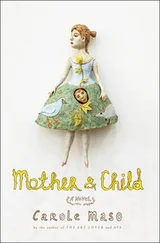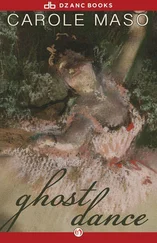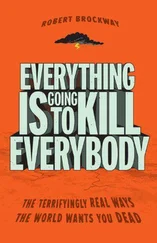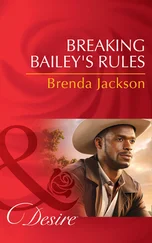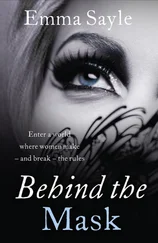I have come to celebrate. I have come to praise .
The American Woman in the Chinese Hat for me is a novel of black celebration, a riot of language and exhaustion and despair. AVA on the other hand is a novel of bright celebration, of coming together, of all possibilities, of joy, jouissance.
Ecstatic dancing to klezmer and nonsense texts .
As lyric as The American Woman in the Chinese Hat is, as patterned, as dependent on image and design, the book would not work in a shorter or more truncated form. It could not work even as a long poem. A novel of loss, told simultaneously with hothouse vibrancy and an odd, detached, cool ferocity, it could not have approximated loss without first suggesting and then suggesting again and again through the fictive conventions of narrative, what exactly was at stake.
We were working on an erotic song cycle. It was called: Everything I Owned . Everything I loved or wanted or feared was here.
To be fierce, strict, smart, like Woolf. Woolf thought Meredith created figures of large, universal, elemental structure, but that these characters lacked concreteness and depth. They were too general to be collective. The qualities of both poetry and prose simultaneously must be achieved by the lyric novelist. The poet novelist must also measure up as a novelist; yes, how silly, of course. Few are up to this. And yet it is crucial, of great importance.
Stein: “Who can think about a novel. I can.”
Themes in The American Woman in the Chinese Hat are reiterated, expanded, echoed as part of the plan, and in this way very dependent on song: “Row, row, row your boat….life is but a dream.” It is not a casual reference, as nothing in this kind of work can be casual — but rather speaks again and again to what is happening in the narrator’s psyche. The transformation of Catherine’s psychic world is constantly mirrored in the outside world. Each word is a boat, a small saving thing in this increasingly dark, blood-drenched dream. Sea.
Language engenders language. Language itself presents unexpected and often extraordinary solutions. It leads you to the what next? To the how and why. To the what if , and if only .
Think about Camus, Malraux, Sarraute, Robbe-Grillet.
Throughout, images such as boats, dream, figs, swans, roses, horses, gloating, angel, butterfly endlessly repeat themselves in varying configurations as the imagination gropes and tries to make sense of chaotic experience. As the imagination tries to save, the outward world distorts to speak of the interior world. The internal world informs the external one. A hallucination. A fever dream. The way often of prose poems, I think.
Reread Baudelaire’s prose poems.
There’s a kind of glittering out there — a dark aching, a longing that can only be adequately felt through form. In The American Woman in the Chinese Hat for instance, tentative gestures give way over time to inevitability. The move towards a radiant place, a place of rigorous disintegration, a place the architecture of the novel allows and makes possible.
And all day pretty girls dip their arms like swans into the fountain…
The dark swan of her desire floating out into the pool…
At the cemetery flowers float in their watery globes…
You said: swans. He can’t help but see swans now at the fountain…
The search still remains, after all this time, (the search that was The Art Lover’s search, 1985–1989) in finding a language in which to speak and the forms that might approximate.
All this:
Forever. For the languages of star and ash and music and numbers. The search for the blue flower of poetry, or a red dress.
As we mimic the heartbeat in our upright walk, home.
Someone puts on Madame Butterfly in the square and they cry .
Woolf: “Stand at the window and let your rhythmical sense open and shut, boldly and freely until one thing melts into another, until the taxis are dancing with the daffodils, until a whole has been made from all the separate fragments.”
How to get it even a little right:
My mother whispering in the next room during the years of my childhood. She’s worried about my brother again. He’s got a hole in his heart. He’s very sick. And on the television now Bosnia. And floating in that room won’t die . How do winds, the first crocuses (I’ll bring them to my teacher), the passage of stars, of time — that’s Orion’s belt; what Mrs. Smith is calling out across the yard (sounds like bar talk) and birdsong. The body next to mine in bed, warmth and then warmth gone away. Where? To work? To the store? What year is it? Mrs. Smith said, it’s Bartok . I hear the music now she’s playing for me and her daughter Alison. The cuckoos when I finally got to France sounded just like that clock. For a moment it is the room of my childhood, three girls in the same bedroom, the cuckoo clock. Another baby, maybe on the way. No! I say emphatically and then traffic — the apartment in New York. On the television, the weatherman. The girl picks up the magic book and reads it at night by flashlight. That’s me; of course.
The illusion of including, of having it all. So many desires. A mélange of influences, techniques, pressures.
As a child my favorite book was the poetic, mystical Wuthering Heights . A somber, lonely, ecstatic meditation. So much solitude in the midst of everything. Three girls in the bedroom. Many children. So much going on. Why was I always so lonely? And still am. In the midst of much joy, such estrangement. How to get some of that down right.
As I take what I perceive, what I see out there, and abstract it, returning with a coherence, a solace of form, a shape.
The challenge: To turn the world, and the workings of the world, into song.
I love the things that continue. That never end. I love the long haul. Is this the novelist’s disposition? The forever.
The ancient consoling tradition. The impulse to sing. The impulse to tell a story, to want to know insatiably, at times, what happens next.
That said, I must admit that conventional storytelling bores me silly. The analytic bits, the dreary descriptive impulse, the cause and effect linearity, the manufactured social circumstances.
To create whole worlds through implication, suggestion, in a few bold strokes. Not to tyrannize with narrative. Allow a place for the reader to live, to dream.
All of sex called up in an apartment vestibule. All reckless, incandescent desire. As in illuminated manuscripts, an emblematic approach to narrative.
Careful of the intercom .
Now in America they call this coffee, but I remember coffee . Let the reader linger there. Go where she will.
The novel is something, even when stopped, which is continuous.
I wanted to be obliterated by light, stunned, dazzled, stopped, and also to never die. To go on.
Each word a boat .
I wanted in my books prayers, bells, arabesques, dervishes, a doomed blood, a remote chorus, the static of cats, the way you looked that night, turning away — modulations to other keys. I wanted it all: the moment and the elongation of the moment, and then another moment, and the cumulative pleasures of an intensifying, building content. I was greedy. I believed it might all be possible.
Not to forget the lost songs of the troubadours and the unfixed relationship between words and music. A way in prose perhaps of speaking to some of my extraordinary solitude?
To fail. To miss the mark. To not even come close.
In the midst of ecstatic possibility, sometimes, even then, no way out.
No longer the hunger for figs. The hunger for an arrangement of anything .
Читать дальше
